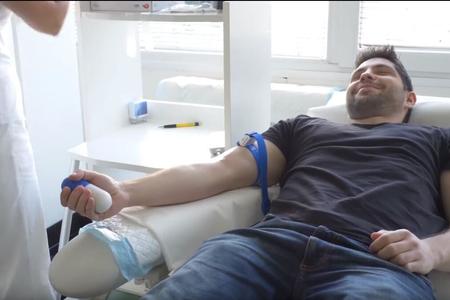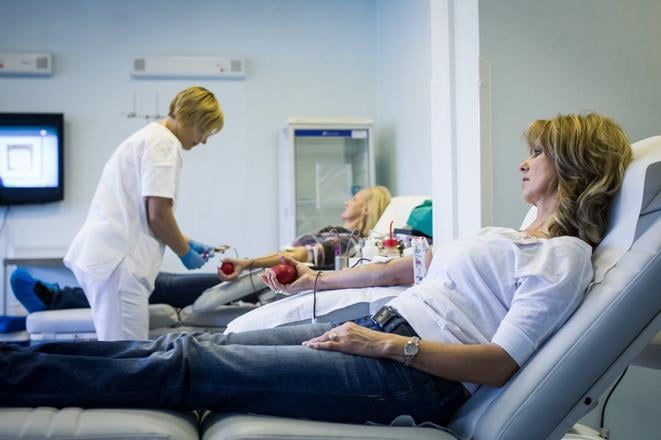Calls have been made for people to donate blood after the Slovak National Transfusion Service (NTS) said stocks of 0 negative and B negative blood were running low as a spread of respiratory diseases, including Covid-19, among the population affects donations.
"A decrease in the number of blood donors will lead to a decrease in the stock of negative blood groups, because only 15 percent of the population has such blood," Martina Frigová, NTS project manager, told the TASR newswire.
Respiratory diseases are a problem
"After donating blood, every donor is asked that in the event of a change in health status, he or she is obliged to report this fact to the centre where they donated blood, and blood from such a donor is automatically biologically degraded," Frigová added.
Covid-19 restrictions continue to apply at transfusion workplaces, she pointed out.
Frigová highlighted that the annual Student Drop of Blood (Študentská Kvapka Krvi) campaign started on Monday, October 24, and will last until November 18.
Who can donate blood
Blood donors must be at least 18 years old. The maximum age is 60, however, if someone is a regular blood donor, they can continue to do so up to age 65 if their weight is over 50 kilograms. Donations can be made every three (men) or four (women) months.
If the blood donor has ever used medicines delivered by intravenous or intermuscular injection, or has had hepatitis in the past or suffers from other serious or chronic diseases, they cannot donate their blood.
Women are not advised to donate blood shortly before, during, or shortly after menstruation and during pregnancy.
What to bring
Anyone attending a transfusion centre to give blood will be asked to provide identification in the form of an ID and health insurance card. Anyone who has previously donated should bring their blood donation card as well. They will then be asked to fill in a questionnaire on their health, lifestyle, and past illnesses.
How to prepare for blood donation
The NTS has a few tips on getting ready before donating blood:
Drink a lot of water one day before donating, at least 2 litres. It is recommended to drink half a litre of water in the morning on the day of the donation. Black coffee is permitted.
Do not eat fatty food (cheese, butter, cream, meat) the evening or morning before donating. It is better to consume fruits, vegetables, fat-free bakery products, jam, honey.
Get enough sleep.
Do not smoke 6 hours before donation.
Do not drink alcohol 12 – 14 hours before donation.
Do not do any intense physical activity, such as fitness training, the day before.

What about foreigners?
Foreigners can donate too if they have permanent or temporary residence and health insurance in Slovakia. A person who has visited a country with a high risk of blood-borne infectious diseases may be temporarily or permanently banned from donating blood.
The NTS has questionnaires for donors in Slovak as well as in English.



 Some teachers donated blood in protest. (source: SME)
Some teachers donated blood in protest. (source: SME)